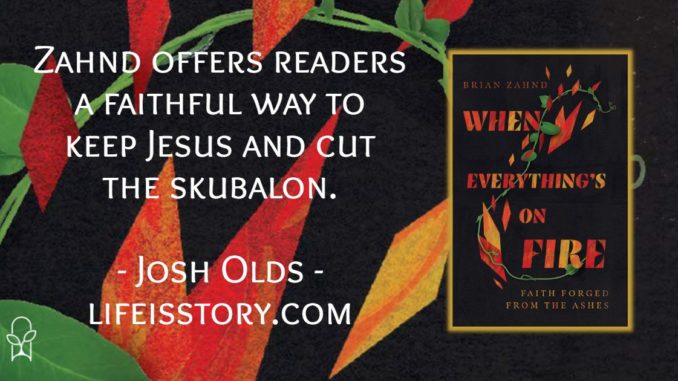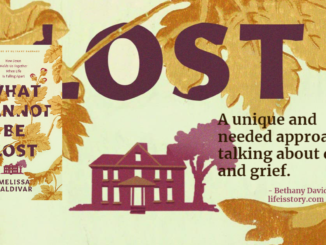
Also by this author: The Wood Between the Worlds: A Poetic Theology of the Cross, The Wood Between the Worlds: A Poetic Theology of the Cross
Published by IVP on November 9, 2021
Genres: Non-Fiction, Christian Life
Buy on Amazon
Goodreads

Is it possible to hold on to faith in an age of unbelief? Intellectual certainty has long been a cornerstone of the Christian faith. But in an age of secularism, skepticism, and cynicism, our worldviews have been shaken. Various solutions exist--some double down on certainty, while others deconstruct their faith until there is nothing left at all. But Brian Zahnd offers a third way: what is needed is not a demolition but instead a renovation of faith. Written with personal and pastoral experience, Zahnd extends an invitation to move beyond the crisis of faith toward the journey of reconstruction. As the world rapidly changes in ways that feel incompatible with Christianity, When Everything's on Fire provides much-needed hope. A stronger, more confident faith is possible when it is grounded in the beauty and truth of Christ. Zahnd permits us to risk the journey of deconstruction so that God can forge something more beautiful in its place.
Deconstruction. It’s a word I’ve heard over and over again as more and more young people distance themselves from the faith in which they grew up. And many times, what I’m seeing is that deconstruction was needed, and deconstruction happened…but now there’s nothing. How can we keep deconstruction from becoming a complete demolition? How do we get rid of the toxic elements of faith and have anything left? What can we keep and what should we let go? In When Everything’s on Fire: Faith Forged from the Ashes, pastor Brian Zahnd offers a way forward.
Zahnd’s affinity for philosophy is evident throughout the book as he draws heavily on Nietzsche, Derrida, and Kierkegaard as he constructs this narrative of struggling with faith. Fortunately, Zahnd is conversant enough with these philosophers that he integrates them well into the conversation, not waxing too academic or arcane, but getting to the heart of the issue while surreptitiously revealing that where we are at today with faith isn’t new or unexpected.
Zahnd portrays the individual as having a theological house. Some things might need to be deconstructed. Some things might need a minor facelift or cosmetic adaptations. And some aspects might need to be demolish altogether and rebuilt. His point is simply this: deconstruction isn’t all or nothing. You can change your mind; you can alter your beliefs. Your theological tradition is not Jesus. He’s larger than any box you can put him in. When Everything’s on Fire calls readers to question, to doubt, to learn, to change. It’s a call to not be stagnant in one’s faith or afraid to admit that one’s beliefs have changed. It’s about using the fire as a way of refining and purifying rather than burning up.
One of the things that I’m still chewing over was a point he made about personal experience. Using a parable of a peach, Zahnd asks us to picture the idea of two people. One: an academician who is the world’s foremost expert on peaches, but who has never eaten a peach. Two: a young girl who loves to eat peaches. Who has truly experienced a peach? The answer is obvious. The subjective experience is greater than objective knowledge. That’s a difficult concept someone like me, who grew up in the age of apologetics, and still wonders how then we respond to those who have subjective experiences in other religions. I’m working on it. But I see Zahnd’s point.
When Everything’s on Fire offers readers a faithful way to keep Jesus and cut the skubalon. It’s a reminder that Jesus is bigger than your theological tradition. It’s permission to shed the toxicity of your past. And it is encouragement to build something better as you pursue Jesus through the flames. Zahnd beautifully portrays what faith can be and, drawing from his own personal experience, invites us into the fire.



